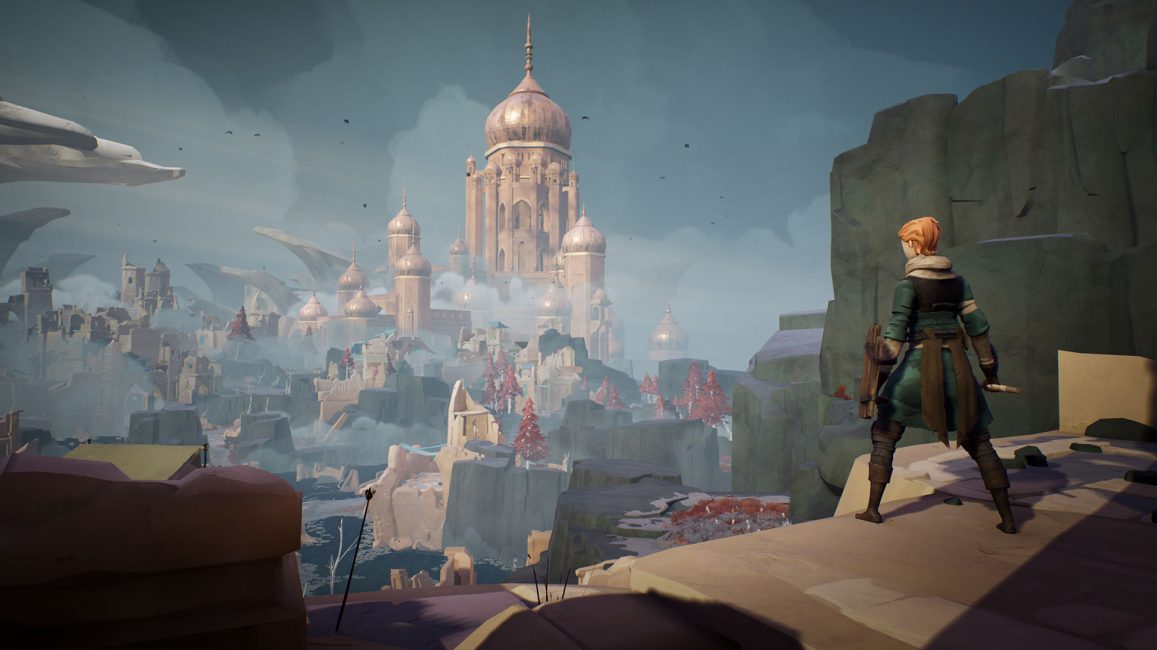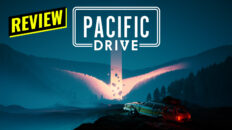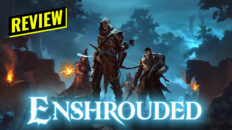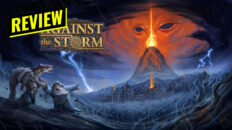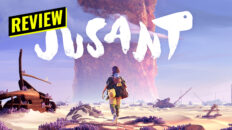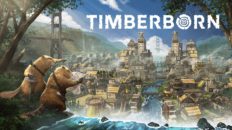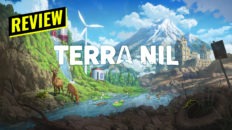It was tough for me to make a list this year because so many of the games I played were great, but also had major flaws. It wasn’t as easy to fill out 10 slots as it has been in previous years, and even harder to rank them. So I’ve decided to just list them in release order. It was a great opportunity for me to remember that you can enjoy playing a game while also acknowledging its short comings.
We’ll start the game that I spent the most time this year, even though it actually came out in 2016.
Stellaris

Stellaris is currently the de-facto 4x space strategy game. When it first launched in 2016 I enjoyed it very much, but since then it has been updated with so many quality of life improvements and expansions it’s almost a new game. There’s something extremely satisfying about slowly expanding your meager civilizations from a single system, to galactic domination. It’s easy to manage a huge empire of sectors, systems, and planets to a point where most of it runs itself. This allows you to focus on managing your fleets to conquer neighboring rivals, and work diplomatic contacts. The addition of end-game “crisis” events made what was otherwise a tedious slog near the end exciting. And the huge amount of traits to choose from means each civilization you start with plays just a little bit different. It’s a game that I used as a palette cleansers between all the big action games of the year.
You can check my original review of Stellaris here, just keep in mind that many of my original complaints have been fixed with patches and expansions.
Monster Hunter World

I tried playing Monster Hunter Tri once on the Wii U and barely made it an hour in, so the fact that I played over 50 hours of Monster Hunter World is a testament to how accessible it is. The idea of Monster Hunter always appealed to me, so jumping into this game and immediately connecting with the Insect Glaive was a joy. Figuring out each monster’s weaknesses and progressing through the admittedly weak story was very satisfying. I began to fall off near the end when the game turned into a materials grind for armors I didn’t really care about, but the first 40 hours were amazing. I’m looking forward to dipping back in at some point after their announced expansions drop.
God of War

I spent the early hours of God of War analyzing the many games is cribs from. Darksiders, The Legend of Zelda, and Hellblade are just a few that come to mind. However, as I kept playing I began to see the game carve it’s own path. Every location, character, and event in the game is painstakingly crafted and memorable. It’s a refreshing departure from the one-note story of the original games and the new approach to gameplay is also a welcome change. I found myself wanting to explore every single corner of the world they made because it was so beautiful and fully realized. I thought the RPG elements like skill trees and armor sets to be a little superfluous, but they never really got in the way. I’m excited for this new direction of God of War and very much look forward to the next one.
Sea of Thieves

Sea of Thieves is on here because of a few amazingly fun play sessions I had. There’s a lot to be said about how Rare chose to structure Sea of Thieves and at first glance it seems very empty. However, after playing with a friends and engaging with it’s unique type of role-playing, I came to realize that the tools the game provides are just that: tools. When used properly they can lead to amazingly fun and entertaining play sessions, and that is what the game it all about. It’s not about loot or leveling up, it’s about the time you spend with your friends and the people you meet along the way. It may sound corny, but it really is about the journey, not the destination. It also looks absolutely amazing, best water ever in a video game.
You can read, and watch, my detailed journey through Sea of Thieves here. It should also be noted that since launch they have had some great community-focused events that capitalize on what makes this game unique in a world full of on-going games.
Moonlighter

Rogue-likes and other run-based games are hit or miss with me. I like the idea of getting better run after run, but often find the repetition and difficulty a turn off. It turns out that all I needed was a neat shop keeping mechanic to give me the motivation I needed to push through the monotony. Moonlighter does a great job of blending the level design and action of The Binding of Issac, the aesthetic of The Legend of Zelda, and the satisfying loop of Stardew Valley. As you dive deeper into the game’s dungeons you collect items that you bring home to sell in your shop. You then spend the other half of the game pricing the items to please the patrons that frequent the shop. There are a lot of little things like a novel inventory management system, secrets to find, and a lot of quality of life features that really make the game a joy to play. It’s a perfect “one more run” style game that keeps you coming back for more. Since launch the developer Digital Sun has added a ton of free content and updates that make the game even better. They’ve also brought it the Nintendo Switch, which is the perfect platform for this type of 2D action game.
You can check out my review here.
No Man’s Sky
The original No Man’s Sky apologist has logged on. I’ve always enjoyed No Man’s Sky from day one. Obviously I saw the flaws, but it gave me the solitary, meditative experience I needed at the time. It was hard for me to not say “I told ya so” when I saw people flocking to it after the NEXT update dropped this summer. Of course the update totally revamped and restructured the game, but the core is the same. Honestly, the changes the made really didn’t do much for me. I’m not one to settle down and build a base and find most of the work around doing that to be tedious. I do appreciate the quality of life improvements and the things they’ve done to make the game look just plain amazing. I ended up going back to my space-nomad ways and documented by journey using the game’s amazing photomode. You can see some of my favorite shots below.
Overcooked 2!

If you liked Overcooked, you’ll probably like Overcooked 2. The changes made are slight, but welcome. You can throw food items which opens up a whole new angle of level design, and the addition of online multiplayer means you can now do some long distance cooking. What really surprised me about this game was how well done the single-player is. There is a satisfying level of strategy that you have to use in order to score three stars on each level. I found myself approaching it more like a puzzle game than anything. It’s an interesting departure from the chaos and silliness of the multiplayer.
You can read my review and watch some our play sessions here.
The Gardens Between

Small games provide a nice break between behemoths like God of War and Red Dead Redemption. The Gardens Between was a surprisingly sweet, novel take on the puzzle genre. You control the flow of time as our companions make their way around an island built out of their childhood memories. You’ll have to manipulate old VHS players, jump across empty soda cans and snack wrappers, and control old video games to solve the simple, yet still challenging puzzles. The story is what really sealed to deal hear, which tells one of a bittersweet friendship. It’s a fun one-sitting game with a great art style and soundtrack.
You can read my review here.
Red Dead Redemption II

This game almost didn’t make the cut, which says something about the unevenness of Red Dead Redemption II. I played about 30 hours of RDR2, which felt more like 60, and fell off pretty hard. I got tired of the methodical pace of almost everything in the game and felt the controls were so clumsy that it actually made the game more difficult than it needed to be. I took a month off, played other games, and came back with a fresh attitude. And it turns out I checked out right before literally everything popped off in the game. The next five or so hours were some of the best I experienced, which still makes for an uneven overall game. However, this is still probably one of the most technically impressive games I’ve ever played, and that alone is note worthy. Purely as a game, it is most definitely lacking and honestly gets in its own way more than it should, but its vision is clear and painstaking executed.
Ashen

If I was to crown a “best game of 2018” this would be it. It’s easy to look at Ashen and just see a Dark Souls clone, however, it’s the things Ashen does differently that make it special. Ashen tells a very straightforward and interesting story about hope and reclamation. As you fight through a large, but linear, world you rescue and help people along the way. They then come back to your town and rebuild it over time, and it’s amazing to see it change. The combat is also fine, but what really struck me was the tone departure from Dark Souls. It also does some really cool things dark and light mechanics that make for some really unique dungeons.
So that’s it. 2018 was a weird year for me and games. There were a lot of great games, but nothing that truly stood out as a clear cut “best”. So while there was no Breath of the Wild, it was a great year for me to reflect on what I really like about games and how it’s possible to like a game while also seeing its flaws.


